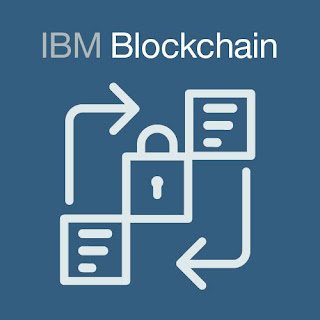Empowering Government
Organizations with Blockchain
Organizations with Blockchain
By: Zelda Anthony, Head of
Blockchain ASEAN
Blockchain ASEAN
Blockchain
needs no introduction these days. What started out as the basis of
cryptocurrency is now disrupting the way dozens of industries are operating
with its capability to handle complex, multi-party transactions in a highly
secure and trusted environment.
needs no introduction these days. What started out as the basis of
cryptocurrency is now disrupting the way dozens of industries are operating
with its capability to handle complex, multi-party transactions in a highly
secure and trusted environment.
It is hence no surprise that nine in ten government
organizations globally plan to invest in blockchain for use in financial
transaction management, asset management, contract management and regulatory
compliance by 2018. In fact, according to the blockchain study, Building Trust in Governments, by the IBM Institute
for Business Value, 14 per cent of government institutions expect to have
blockchain in production and at scale by 2017 while seven in ten government
executives predict blockchain will significantly disrupt the area of contract
management between the public and private sectors.
organizations globally plan to invest in blockchain for use in financial
transaction management, asset management, contract management and regulatory
compliance by 2018. In fact, according to the blockchain study, Building Trust in Governments, by the IBM Institute
for Business Value, 14 per cent of government institutions expect to have
blockchain in production and at scale by 2017 while seven in ten government
executives predict blockchain will significantly disrupt the area of contract
management between the public and private sectors.
The level of trust and security which blockchain provides, is
especially critical in the public sector where governments typically deal with
highly personal and confidential citizen information. For example, blockchain
can be used to register and record property transactions, preventing traders
from defrauding banks. It can also be used for healthcare initiatives so as to
track medical records, citizen services. On a day-to-day level, blockchain has
the potential to make government tendering processes and purchases more efficient,
and reduce the potential for fraud and error.
especially critical in the public sector where governments typically deal with
highly personal and confidential citizen information. For example, blockchain
can be used to register and record property transactions, preventing traders
from defrauding banks. It can also be used for healthcare initiatives so as to
track medical records, citizen services. On a day-to-day level, blockchain has
the potential to make government tendering processes and purchases more efficient,
and reduce the potential for fraud and error.
To get the most from blockchain in your organization, here
are a few things to note:
are a few things to note:
- Start
small – While you may be inspired to define an
ambitious strategy from the onset, it is usually better to start small
then scale from there. A good use case should be practical, top-line
oriented and have senior leadership backing. Keep in mind that if it’s too
discrete, the investment will benefit only a narrow slice of the business.
- Not
a one-size-fits-all approach – Not all
blockchain platforms are suitable for the same purposes. Some are
appropriate for high value, point-to-point transactions and others for
high volume transactions. Some are built on open-source platforms, others
on proprietary languages that may have a limited developer base. Engage
your employees, IT team and external experts, if needed to clarify your
organization’s end user needs and identify the most suitable technologies
to address them.
- Involve
your key suppliers and customers
– One of the most exciting aspects of permissioned ledger environments is
the network effects they create – the more participants, the greater the
value. In developing this ecosystem, it’s again best to start small. Consider
doing a pilot run in partnership with a trusted supplier which can help to
provide proofs-of-concept and shine light on legal and process changes
that need to be considered.
- Blockchain
is dynamic – As the technology is still
advancing, it is important for teams to go into the project with an open
mindset. Be prepared to adapt, refine and collaborate, and more
importantly, measure and report results. Company leadership also plays a key
role in setting that tone — giving teams permission to experiment and
allowing them to fail fast so they may succeed faster.
Distributed ledgers like the blockchain holds tremendous
potential for governments to deliver citizen engagement services more
effectively. However to reach its full potential, blockchain must involve a
concerted effort between the public and private sector in developing smart
standards.
potential for governments to deliver citizen engagement services more
effectively. However to reach its full potential, blockchain must involve a
concerted effort between the public and private sector in developing smart
standards.
For the LATEST tech updates,
FOLLOW us on our Twitter
LIKE us on our FaceBook
SUBSCRIBE to us on our YouTube Channel!





